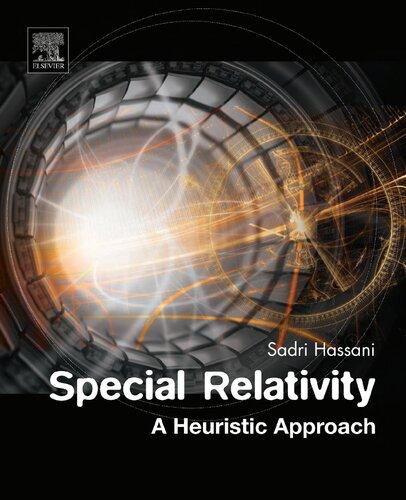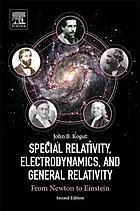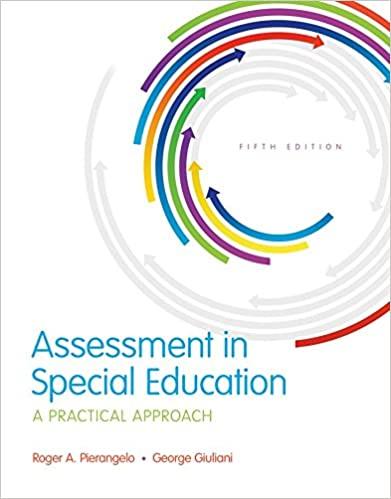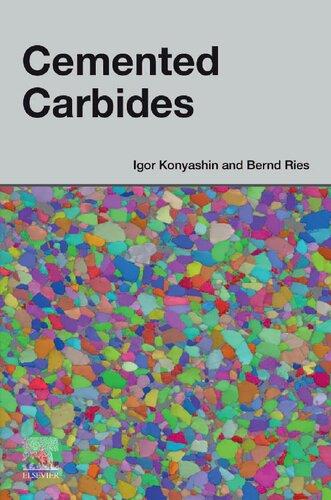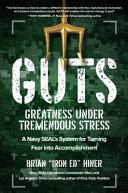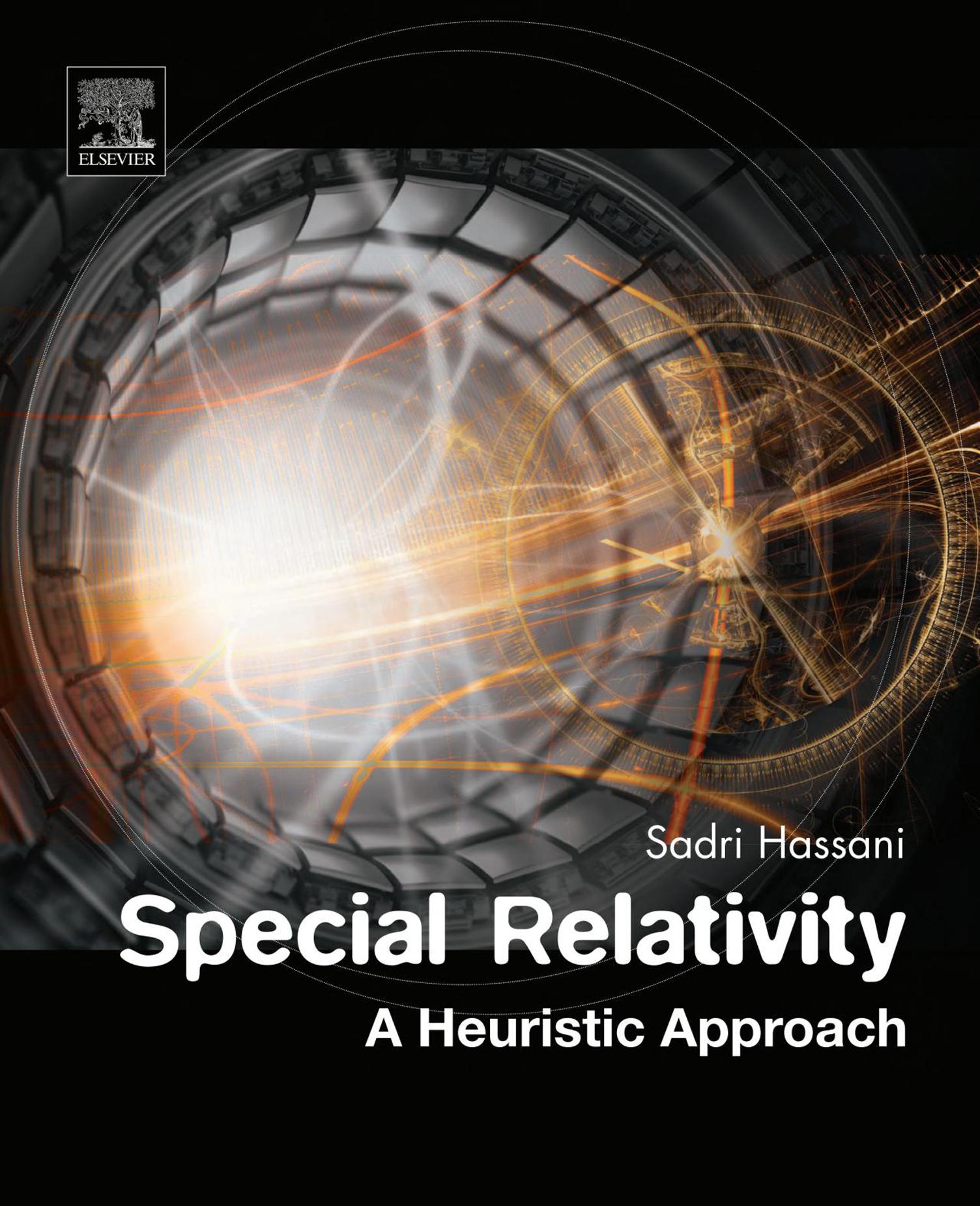SpecialRelativity AHeuristicApproach
UniversityofIllinoisatUrbana-Champaign,Urbana,IL,USA
IllinoisStateUniversity,Normal,IL,USA
SadriHassani
Elsevier
Radarweg29,POBox211,1000AEAmsterdam,Netherlands TheBoulevard,LangfordLane,Kidlington,OxfordOX51GB,UnitedKingdom 50HampshireStreet,5thFloor,Cambridge,MA02139,UnitedStates
Copyright©2017ElsevierInc.Allrightsreserved.
Nopartofthispublicationmaybereproducedortransmittedinanyformorbyanymeans,electronic ormechanical,includingphotocopying,recording,oranyinformationstorageandretrievalsystem, withoutpermissioninwritingfromthepublisher.Detailsonhowtoseekpermission,further informationaboutthePublisher’spermissionspoliciesandourarrangementswithorganizationssuch astheCopyrightClearanceCenterandtheCopyrightLicensingAgency,canbefoundatourwebsite: www.elsevier.com/permissions.
Thisbookandtheindividualcontributionscontainedinitareprotectedundercopyrightbythe Publisher(otherthanasmaybenotedherein).
Notices
Knowledgeandbestpracticeinthisfieldareconstantlychanging.Asnewresearchandexperience broadenourunderstanding,changesinresearchmethods,professionalpractices,ormedicaltreatment maybecomenecessary.
Practitionersandresearchersmustalwaysrelyontheirownexperienceandknowledgeinevaluatingand usinganyinformation,methods,compounds,orexperimentsdescribedherein.Inusingsuch informationormethodstheyshouldbemindfuloftheirownsafetyandthesafetyofothers,including partiesforwhomtheyhaveaprofessionalresponsibility.
Tothefullestextentofthelaw,neitherthePublishernortheauthors,contributors,oreditors,assume anyliabilityforanyinjuryand/ordamagetopersonsorpropertyasamatterofproductsliability, negligenceorotherwise,orfromanyuseoroperationofanymethods,products,instructions,orideas containedinthematerialherein.
LibraryofCongressCataloging-in-PublicationData
AcatalogrecordforthisbookisavailablefromtheLibraryofCongress
BritishLibraryCataloguing-in-PublicationData
AcataloguerecordforthisbookisavailablefromtheBritishLibrary
ISBN:978-0-12-810411-8
ForinformationonallElsevierpublications visitourwebsiteat https://www.elsevier.com/books-and-journals
Publisher: JohnFedor
AcquisitionEditor: AnitaKoch
EditorialProjectManager: AmyClark
ProductionProjectManager: AnithaSivaraj
Designer: ChristianJ.Bilbow
TypesetbyVTeX
ToSarah,Dane,andDaisy
Preface
Thisisanintermediatetextbookonspecialrelativitywrittenwithmainly physicsjuniorsandseniorsinmind.However,asophomorewithastrong backgroundincalculusandcalculus-basedintroductoryphysics,oragraduatestudentwhofeelsthat(s)helacksthenecessaryknowledgeinspecial relativity,canalsobenefitfromthebook.Instructorswillfindamultitude ofcarefullychosenillustrativeexamplesandclosetothreehundredend-ofchapterproblems—whosedetailedsolutionsareavailableuponpurchaseor adoption—extremelyhelpfulpedagogicaltoolsforteachingrelativity.
Whywriteanotherspecialrelativitytextbookwhentherearesomany(some excellent)booksalreadyavailable?Theansweris(a)theapproachand(b)the detailedcoverageoftopicsthatareonlyglossedoverintheexistingbooks.The approachistheemphasisandabundantuseoftheLorentztransformation.The topics,emphasizedinthisbookbutmentionedonlyinpassinginmanyothers, includerelativisticphotography,interstellartravel(encompassingadetailed discussionofground-basedlaserpropulsion),spacetimetriangleinequality andtheproofofthefactthataccelerationreducesaging,connectionbetween specialrelativity,spin,andantimatter,etc.
AttheheartofspacialrelativityliestheLorentztransformation.Whilelength contractionandtimedilationarelessabstract,theycanleadto“obvious” resultswhichturnouttobeincorrect.Lorentztransformation,ontheother hand,oncemasteredandappliedcorrectly,willalwaysyieldtherightresults, eventhoughitismoreabstract.ThisbookreliesalmostexclusivelyonLorentz transformations,andappliesthemtoalargenumberofsituations,someappearingforthefirsttimeinthisbook.Totrulyappreciatetherelevanceand powerofLorentztransformations,thenoviceneedstoseenotonlytheirnumerousapplications,butalsotheiroriginandbeshownthattheyarefirmly basedonexperimentalresults.
Studentslearnnewabstractconceptsbestwhentheseconceptsareconnected— throughawell-designedanalogy—tofamiliarideas.Ibelievethatthemost
heuristicderivationofLorentztransformationistoconnectittotheconceptof therelativisticspacetimedistance,becausetheideaof“distance”isintuitively obvioustothebeginner.So,ifthefamiliarEuclideandistanceispresentedin suchawayastomakeatransparentcontactwiththespacetimedistance,the latterwillnotbeasmysteriousasitfirstappearstobe,anditsbyproduct,the Lorentztransformation,canthenbeappreciated.
Startingwithsomeintuitiveandobviousassumptionsconcerningdistance inthetwodimensionsinwhich flatlanders live—andforwhom“height”is notasdirectlyaccessibleaslengthandwidth—thebookderivesthethreedimensionalEuclideandistancebetweentwopointsintermsoftheircoordinates.Then,assumingtheinvarianceofthisdistance,itdeducesthefamiliar orthogonalcoordinatetransformation.Ihavepresentedthederivationinsuch awaythatthetransitiontospacetimebecomesself-evident.Thus,following exactlythesameprocedure,IderivetheMinkowskiandistanceandthecorrespondingtransformationthatrespectstheinvarianceofthatdistance:the Lorentztransformation.
Thefirstchapterisconceptualandrequiresnomathbeyondhighschoolalgebra.Itisagoodintuitiveintroductiontorelativityofsimultaneityandlength contraction.Chapter 2 derivesthetimedilationandlengthcontractionformulasandappliesthemtovariousexamples,includingsomeuniqueand insightfulapplicationstorelativisticphotographyinanticipationofChapter 7. Chapter 3 derivestheinvariantspacetimedistanceandLorentztransformation foraone-dimensionalrelativemotionaftershowingstudentshow flatlanders canderiveEuclideandistanceeventhoughtheycan’t“feel”thethirddimensionofheight.
Picturesareworthathousandwords.That’swhygeometrycanbeextremely usefulwhenalgebrabecomestedious.Thegeometryoftwo-dimensional spacetimeisintroducedinChapter 4 andappliedtomanyexamplessuchas Dopplereffect,re-derivationofLorentztransformations,andthewellknown “trainandtunnel”paradox.Thespacetimetriangleinequality—thefactthat thesumofthelengthsoftwosidesofatriangleis less thanthelengthofthe thirdside—isderivedinthischapterandusedtoshowthatastraightlinein spacetimegeometryisthe longest distancebetweentwoevents.Adirectconsequenceofthispropertyisthatinertialobserversagefasterthanaccelerated observers,thusexplainingthetwinparadox.
ThenaturalrelativisticsubstitutefortheNewtonianuniversaltimeinkinematicsisidentifiedasthepropertime.InChapter 5,Igeneralizetheordinary conceptofvelocityinaplane(thederivativeofdisplacementwithrespectto theuniversaltime)tothevelocityinaspacetimeplaneasthederivativeofthe spacetimedisplacementwithrespecttopropertime.Spacetimemomentumis theimmediateconsequenceofspacetimevelocity,andrelativisticmomentum andenergyareidentifiedasthecomponentsofspacetimemomentum.
Chapter 6 definesthegeneralLorentztransformationusingmatricesand,with thehelpofAppendix B,extendsthetwo-dimensionalLorentztransformations tothefullfour-dimensionalspacetime.Theconceptof4-vectorsandtheir dotproductareintroducedasarethenotionsof4-velocity,4-acceleration, 4-momentum,4-force,andthesecondlawofmotion.Variousexamplesillustratethepowerof4-vectorsandtheirdotproducts.
Chapter 7 is,asfarasIknow,uniquetothisbook.Itisthearenainwhich thepowerofLorentztransformationandthelimitation,eventheincorrectness,oftheuseoftheconceptsoftimedilationandlengthcontractionis illustrated(seeProblem 7.1 forapopularmistake).Conditionsunderwhich lengthcontractioncanbe photographed areinvestigated,andthereasonwhy ordinaryphotographyofrelativisticallymovingobjectsdoesnotrevealthis lengthcontractioniselaborated.Oneoftheoutstandingresultsofthischapteristhe rigorousproof thatthephotographofarelativisticallymovingsphere inapinholecameraisanellipse elongated alongthedirectionofmotion,and thattheimageofsuchasphereisacircleif(andonlyif)itmovesdirectlytowardorawayfromthecamera.ThisdoesnotcontradicttheresultsofPenrose andTerrell,whodemonstratethatthe cone convergingona pointobserver is circular.Byactuallyconstructingthesecircularcones,thechaptershowsthat, ifthepinholecamerapointsatthecenterofthesphere,theimageformedon itsphotographicplatecannotbecircular.Infact,thechapterprovesinthree differentwaysthattheimageisanellipsestretchedinthedirectionofmotion.
Chapter 8 seesanimportantapplicationof4-vectorsandfour-dimensionaldot producttoparticleinteractions.Thenotionsofcenterofmassandlabframes areintroducedandusedinvariousexamplestoinvestigateparticlecollisions anddecays.ThechapterendswithasimpleintroductiontotheDirac’sdiscoveryofantimatterandtheconnectionbetweenspecialrelativityandspin.
Chapter 9,anotherchapteruniquetothisbook,appliesfour-momentumconservationofChapter 8 torocketpropulsion.Themotionoffuelcarryingspacecraftisanalyzedformassiveaswellasphotonexhaustcasesandtheirimpracticalitydemonstrated.Thealternativeground-basedlaserpropulsioniscovered inlengthydetailinlightoftherecentinterestinsuchprojects.Certainpeculiaritiesofrelativisticmotioninonedimension,suchasthefactthatforceisan invariantquantity,arepointedoutandtheimportanceofLorentzcovariance, acrucialprerequisiteoftheapplicationofspecialrelativity,isemphasized.It isthenshownthattherequirementofLorentzcovarianceinvalidatesmany existingapproachestotheproblem.
Chapter 10 isanelementaryintroductiontotensoralgebraasappliedtospecialrelativityandusedmainlyinChapter 11 onrelativisticelectrodynamics. ThelatterderivestheLorentztransformationforelectricandmagneticfields andcalculatestheelectricandmagneticfieldsofauniformlymovingcharge startingfromtheCoulombforceofastaticcharge.Electromagneticfieldtensor
leadsnaturallytotheLorentzforcelawandanelegantwayofwritingMaxwell’s equations.
Althoughsomewhatoutsideitsmainthrust,thebookendswithaveryaccessibleintroductiontothestandardcosmologicalmodel.Afewofthetopics developedinthebookareusedtoillustratetheimportanceofrelativityinthe physicsoftheearlyuniverse.Alongtheway,anumberofideas,notrelatedto relativity,arediscussedandtherelevantequationsderivedindetail.So,Chapter 12 isalsoanaccessibleexposuretosuchtopicsasEMradiationincavities, Planckformulaoftheblackbodyradiation,Stefan-Boltzmannlaw,Friedmann equation,andtheevolutionoftheearlyuniverse.
Discussions(sometimesheated!)withsomeofmycolleaguesclarifiedmany subtleideasofrelativityandconsolidatedmybeliefthatLorentztransformationisthebedrockofspecialrelativity,andshouldbeatthecoreofteaching thesubjecttothenovice.IwouldliketothankRobertSchrockforreadingan earlyversionofChapter 7 andgivingconstructivecommentsonit.Ialsothank SörenHolstandJohnMallinckrodtformanyexchangesofemail,whichhelped medeciphertheintricaciesofapplyingLorentztransformationstovariousinterestingexamples,someofwhichappearthroughoutthebook.Needlessto say,Iamsolelyresponsiblefortheaccuracyofthecontentofthebook.
SadriHassani
Urbana,IL,USA
December2016
ListofSymbols,Phrases,andAcronyms
ˆ a unitvectorinthedirectionof a antiparticle aparticlewhosemassandspinareexactlythesameasitscorrespondingparticle, butthesignofallits“charges”areopposite.Ifaparticleisrepresentedbytheletter p ,then itiscustomarytodenoteitsantiparticleby p .Ifaparticleisrepresentedbytheletter q (or q + ),thenitiscustomarytodenoteitsantiparticleby q + (or q ). as arcsecond;anarcsecondisanangle 1/3600 ofadegree. baryon ahadronwhosespinisanoddmultipleof /2.Baryonsarecomposedofthreequarks. Examplesofbaryonsareprotonsandneutrons.
β fractionalvelocityofoneobserverrelativetoanother, β = v/c boson aparticlewhosespinisanintegermultipleof .Allgaugeparticlesarebosonsasareall mesons,aswellastheHiggsparticle. causallyconnected referringtotwoevents.Ifanobserveroralightsignalcanbepresentattwo events,thoseeventsaresaidtobecausallyconnected. causallydisconnected referringtotwoevents.Ifanobserveroralightsignalcannotbepresent attwoevents,thoseeventsaresaidtobecausallydisconnected.
CBR CosmicBackgroundRadiation.
CM centerofmass.
CS coordinatesystem.
ˆ ex , ˆ ey , ˆ ez unitvectorsalongthethreeCartesianaxes.
EM electromagneticorelectromagnetism,oneofthefourfundamentalforcesofnature. equilibriumtemperature temperatureoftheuniverseatwhichmatterandradiationdensities areequal.
eV electronvolt,unitofenergyequalto 1 6 × 10 19 J. fermion aparticlewhosespinisanoddmultipleof /2.FermionsobeyPauli’sexclusionprinciple:notwoidenticalfermionscanoccupyasinglequantumstate.Electrons,protons,and neutronsarefermions,soareallleptonsandquarks,aswellasallbaryons.
γ theLorentzfactor, γ = 1/ 1 β 2 = 1/ 1 (v/c)2 . gaugebosons Accordingtothemoderntheoryofforces,fundamentalparticlesinteractviathe exchangeofgaugebosons.Excludinggravity,whosemicroscopicbehaviorisnotwellunderstood,thereare12gaugebosonswhoseexchangeexplainsalltheinteractions: Z 0 , W ± and γ (photon)areresponsibleforelectroweakinteraction,while8gluonsareresponsibleforstrong interaction.
gluons theparticlesresponsibleforstronginteractions:twoormorequarksparticipateinstrong interactionbyexchanginggluons.Therearefourgluons,whichwiththeirantiparticlescomprisetheeightgluonswhoseexchangebindsquarkstogether.
GTR generaltheoryofrelativity;therelativistictheoryofgravity.
Gyr gigayear,equalto 109 years.
hadron aparticlecapableofparticipatinginstrongnuclearinteractions.Examplesofhadrons areprotons,neutronsandpions.Allhadronsaremadeupofquarksand/orantiquarks. half-life thetimeintervalinwhichonehalfoftheinitialdecayingparticlessurvive.
LAV LawofAdditionofVelocities.
lepton aparticlethatparticipatesonlyinelectromagneticandweaknuclearinteractions,but notinstrongnuclearinteractions.Leptonsareelementaryparticlesinthesensethattheyare notmadeupofanythingmoreelementary.Therearethreeelectricallychargedleptons:electron,muon,andtauon.Eachchargedleptonhasitsownneutrino.So,altogethertherearesix leptons.
LHC LargeHadronCollider.
lightcone (atanevent E )Thesetofalleventsthatarecausallyconnectedto E lighthour the distance thatlighttravelsinonehour, ≈ 1.08 × 1012 m. lightminute the distance thatlighttravelsinoneminute, ≈ 1 8 × 1010 m. lightsecond the distance thatlighttravelsinonesecond, ≈ 3 × 108 m.
lightlike referringtotwoevents,when c t = x or ( s)2 = 0 luminallyconnected referringtotwoevents.Ifalightsignalcanbepresentattwoevents,those eventsaresaidtobeluminallyconnected.
ly lightyear;onelightyearis 9.467 × 1015 m.
meantime thetimeintervalinwhich 1/e oftheinitialdecayingparticlessurvive.
meson ahadronwhosespinisanintegermultipleof .Mesonsarecomposedofonequark andoneantiquark.Examplesofmesonsarepions.
MeV millionelectronvolt,unitofenergyequalto 1 6 × 10 13 J.
µm micrometer = 10 6 m.
Minkowskiandistance alsocalled“spacetimedistance,”
( s)2 = (c t)2 ( x)2
isanexpressioninvolvingthecoordinatesoftwoeventswhichisindependentofthecoordinatesusedtodescribethoseevents.
Mly millionlightyears.
MMclock sometimescalled“lightclock”isdescribedonpage 17
Mpc Megaparsec.
muon anelementaryparticlebelongingtothegroupofparticlesnamed“leptons,”towhich electronbelongsaswell.Muoniscalleda“fatelectron”becauseitbehavesverymuchlikean electronexceptthatitisheavier.
neutrino aneutralleptonwithverysmallmass.Neutrinosparticipateonlyinweaknuclear force.That’swhytheyareveryweaklyinteracting.
ns nanosecondor 10 9 s.
Parsec adistanceofabout3.26lightyears.Oneparseccorrespondstothedistanceatwhichthe meanradiusoftheEarth’sorbitsubtendsanangleofonesecondofarc.
positron theantiparticleoftheelectron.
quarks elementaryparticleswhichmakeupallhadrons.Therearesixquarks:up,down,strange, charm,bottom,top.Quarksparticipateinallinteractions,inparticular,thestronginteraction.
RF referenceframe.
spacelike referringtotwoevents,when c t< x or ( s)2 < 0.
spacetimedistance seeMinkowskiandistance.
STR specialtheoryofrelativity.
tauon anelementaryparticlebelongingtothegroupofparticlesnamed“leptons,”towhich electronbelongsaswell.Itistheheaviestleptondiscoveredsofar.
timelike referringtotwoevents,when c t> x or ( s)2 > 0
NotetotheReader
Ifyouwanttomasterspacialrelativity,you’llhavetoknowhowtoapply Lorentztransformations.Theyarerelativisticcoordinatetransformationsthat connecttwodifferentobservers.Sortofgeneralizationsoftheorthogonal transformationsusedinEuclideangeometry.
TomasterLorentztransformations,you’llhavetoreallyunderstandtheconceptofan“event.”Onceyourealizewhataneventis,thenext(andhardest step)istobeabletovisualizehowthateventlooksina“moving”reference frame.Considertwoevents:thelaunchofaspacecraftanditslandingonan exoplanet.ForanEarthobserver,thelaunchoccurshereandnow,thespacecraftstartsmovingawayatlaunch,thelandingoccursthereandthen,andat landing,thecraftapproachestheexoplanet.
Nowsupposethatyouareonthespacecraft.Ifyoucanimaginethat youarenot moving,thatthelaunchoccurshereandnow,withthe Earth startingtomove away,thatthelandingoccurs here andthen,andthatinlandingthe exoplanet approaches you,thenyouarehalfwaytounderstandingLorentztransformations.
ThereareplentyofexamplestotrainyourmindtopicturesuchLorentztransformations.Gothroughthemandtrytoreproducethesolutions withthebook closed.Yes,withthebookclosed,becausesimply“followingthesolutions”in thebookwillnotteachyouLorentztransformation(orphysics,ormath). Onceyouhavegonethroughalltheexamples,doasmanyoftheend-ofchapterproblemsasyoucan...themorethemerrier!
ASolutionsManualprovidingsolutionstoalloftheend-of-chapterproblems isavailablefordownloadat https://www.elsevier.com/books-and-journals/ book-companion/9780128104118.
QualitativeRelativity
Theseedsofrelativitytheorywereplantedonaspringdayinalecturehall onthecampusoftheUniversityofCopenhagenin1820.AsProfessorHans ChristianÖrstedwasdemonstratingthepoweroflargeelectriccurrents,he notedthedeflectionofanearbycompassneedleassoonasalargecurrent wasestablishedinthecircuit.Thushestumbledononeofnature’sbest-kept secrets,namelythatelectriccurrentscanproducemagneticfields.
1.1ITBEGANWITHMAXWELL
Youmightthinkthatbecausecurrentsareproducedbymovingchargesand becausemotionisarelativeconcept,thereisalreadyaconnectionbetween electromagnetismandrelativity.Afterall,ifyoumovewiththechargesproducingtheelectriccurrent,theywillappearmotionlesstoyouandyoushould notdetectanymagneticfield.1 Whilethisiscertainlytrue,itcontainslittle morethanthefactthatthemagneticfielddisappearsforanobservermoving alongsidetheelectriccharges.Tomakecontactwith the theoryofrelativity, youneedthefullmachineryofelectromagnetismasdescribedbyMaxwell’s equations.
Ifyouhavesomefamiliaritywithvectoranalysisandhavenotseenhow Maxwellderivedhisfamousequations,you haveto readAppendix A.Ittruly affirmsthe“powerofthemind,”notinthewaythatmystichealthguruswant youtobelieve,butthepowerinstigatedbymathematicsandvindicatedby countlesspracticalusesofitsimplications.Italsolaysthefoundationofrelativityinastatementrepeatedhere: SecondPostulateof Relativity
Note1.1.1. Electromagneticwavestravelat c = 299792458 m/s,thespeedof lightinvacuum,regardlessofthemotionoftheirsource.
1 Inarealwire,themotionofthenegativeelectronscreatesacurrent.Ifyoumovewiththeelectrons, thenthepositivebackgroundchargesmoveintheoppositedirection,andthemagneticfieldwillnot disappear.Iamnotconsideringrealwires,butthecaseinwhichonlychargesofonesignarepresent. 1
FirstPostulateof Relativity
LawofAdditionof
FIGURE1.1 Instantaneouslocationofamovingobjectrelativetotwoobservers.
Thevalueofthespeedoflightgivenhereisexact.In1983,thespeedof lightwasgiventhisexactvalue,whiletheunitoflength,meter,wasdefined asthedistancelighttravelsin 1/299732458 second.Seconditselfisdefined as 9192631770 periodsoftheoscillationofcertaintransitionofcesium133 atom.
Thestatementin Note1.1.1 issometimescalledthe secondpostulateofrelativity,andasyou’llsee,theentiretheoryofspecialrelativityisbasedonit.For completeness,let’salsostatethe firstpostulateofrelativity:
Note1.1.2. Thelawsofphysicsarethesameforallinertialobservers.
Aconsequenceofthispostulateisthatitisimpossibletodetectthe(absolute) uniformmotionofareferenceframe(RF)throughmeasurementsdoneentirelyinthatRF.Hereiswhy:Ifyou could measuretheabsolutemotionand yougotanumberasthespeedofaparticularRF,thenby Note1.1.2 thisnumbershouldbethesamefor all RFs.ButifallRFshavethesameabsolutespeed, theywouldnotbemovingrelativetooneanother.
Thesecondpostulateofrelativityisinconflictwiththeintuitiveclassical notionofthe lawofadditionofvelocities (LAV). Figure1.1 showstheinstantaneouslocationofamovingobjectrelativetoobservers O1 and O2 .From yourelementarymechanicscourse,youknowthatthesepositionvectorssatisfy r1 = r12 + r2 .Differentiatingthisequationwithrespecttotime,youobtain
, (1.1) whichstatesthatthevelocityoftheobjectrelativeto O1 isthesumofthevelocityoftheobjectrelativeto O2 andthevelocityof O2 relativeto O1 .Thisisthe LAV.Asanexample,supposethatSonyaisridingatrainmovingat200km/hr. Shefiresabulletfromherguntowardthefrontofthetrain.Ifthespeedof thebulletrelativetothegunis300km/hr,thenSam,standingontheground outside,seesthebulletflybyat500km/hr.
NowsupposethatSonya,ridingonasupertrainandholdingherlaserpointer outsidethetrain,sendsabeamoflighttowardthefrontofthetrain.Sam,who isstandingoutside,hundredsofkilometersawayfromthetrain(therefore,not evenseeingthesourceofthebeam),detectsthelaserlightandmeasuresits speedtobe299792458m/s,regardlessofhowfastthetrainismoving!That’s theessenceofthesecondpostulateofrelativityin Note1.1.1.Ontheother hand,LAVinstructsourintuitiontoaddthespeedofthetraintothespeed ofthelightrelativetothelasergun.ThisistheconflictbetweenLAVandthe secondpostulate.
TheLAVwassofirmlyestablishedinthenineteenthcenturythatthenotionof lighttravelingwiththesamespeedrelativetotwodifferentRFs—andtherefore, thesecondpostulateofrelativity—wasconsideredalogicalfallacy!So,what wasthealternative?OnepossibilitywastoconsidertheEarthasthespecialRF inwhichMaxwell’sequationshold.ButthiswasimmediatelydismissedbecauseCopernicus,threecenturiesearlier,hadalreadycautionedaboutthedangersofbestowingupontheEarthaspecialpositionintheuniverse.Moreover, theorbitalmotionoftheEarth,withitssemi-annual180-degreedirectional flip,wouldhavetohavedistortingeffectsonthelightofstarsandplanets, whichwouldbeeasilydetectable.Lackofsuchdistortionsimmediatelyrules outtheEarthasaprivilegedframe.IftheEarthisnottheprivilegedRF,then, forthesamereason,nootherplanet,northeSunnoranyotherstarorgalaxy canbeprivileged.
Theonlyremainingalternativewasthe“medium”surroundingthecelestial bodiesandfillingthespacebetweenthem.Justaswaterwaveistheoscillation
Theriseandfallofether theory. ofwaterandsoundistheoscillationofair,theundulationofthismedium, called ether,manifesteditselfaslight.Theideaofetherwasinventedandused byHuygensasearlyas1690,butitbecamethesubjectofintensescrutinyin thenineteenthcenturyafterMaxwell’spredictionoftheelectromagnetic(EM) waves.Ethertheorydemandedsomanystrangeandcomplicatednotionsthat bythelastquarterofthenineteenthcentury,physicistsstartedtodoubtitsexistence.ThefinalblowtoethercamethroughtheworksofAlbertMichelson (1852–1931)andEdwardMorley(1838–1923),oneofwhosecrucialexperimentsshowedthattherewasnodetectablemotionofEarthrelativetoether, therebyunderminingthetheoryandtheconceptofether.
1.1.1EinsteinandSignalVelocity
Whenhewasonly16yearsoldin1895,Einsteinwonderedhowtheworld wouldappeartohimifhecouldcatchupwithlight;inparticular,whatwould lightitselflooklike.Youcanappreciatetheintriguingnatureofthisquestion byananalogy.Imaginethatyouarequietlymovingovercircularwaterwaves atexactlythesamespeedastheirexpansionrate.Howwillthewavesappear Howwouldwaterwaves lookifyoucaughtupwith them? toyou?Concentrateonlyonthelocalwaves2 andassumethatyouridejust
2 Clearlyyoucannotmovewithallthewavesastheygoindifferentdirections.
aboveacrest.Youseethecrestrightunderneathyou,andsinceyoumovewith itatexactlythesamespeed,itwillremainunderneath.Theothercrestsand troughsinyourimmediatevicinityalsomoveatthesamespeed,andwillalso remainstatic.Thus,locallyatleast,thewaveceasestoexist!Itwillappearas astaticandpermanentdeformationofwatersurfacewithnomotionandno oscillation.
Ifyoucouldcatchupwithlight,andifetherreallyexisted,thentheetherwave
Howwouldlightlookif youcaughtupwithit? (i.e.,light)wouldalsoceasetoexist!Whatisevenmoreintriguingisthat,since etherwassupposedlyinvisible(transparent),therewouldbenotraceoflight left!Althoughinthecaseofwaterwaves,astaticdeformationofwater,the mediumoftransmission,waslefttoremindyouoftheoncetravelingwave,no suchreminderwillremaininthecaseoflight.Assoonasyoucatchupwithit, lightwillbecompletelygone!
Intheinterveningyearsbetween1895and1905,thequestionofthebehavior oflightandmotionwasconstantlyonEinstein’smind.Ashisscientificand mathematicalabilitiesmatured,thequestiontookonthemoredefiniteform ofhowlightbehavedinmovingframes.IntheconflictbetweenMaxwell’s constancyofthespeedoflightandNewton’sLAV,Einsteintooksideswith Maxwellandresolvedtheconflictbytheanalysisoftheconceptoftime.Here isEinstein’saccountofhisdiscoveryofSTR:
Whydothesetwoconcepts[LAVandMaxwell’sprediction]contradicteach other?Irealizedthatthisdifficultywasreallyhardtoresolve.Ispentalmost ayearinvaintryingtomodifytheideaofLorentzinthehopeofresolvingthis problem. Einsteinexplainshowhe createdSTR.
BychanceafriendofmineinBern(MicheleBesso)helpedmeout.Itwasa beautifuldaywhenIvisitedhimwiththisproblem.Istartedtheconversation withhiminthefollowingway:“RecentlyIhavebeenworkingonadifficult problem.TodayIcomeheretobattleagainstthatproblemwithyou.”Wediscussedeveryaspectofthisproblem.ThensuddenlyIunderstoodwherethe keytothisproblemlay.NextdayIcamebacktohimagainandsaidtohim, withoutevensayinghello,“Thankyou.I’vecompletelysolvedtheproblem.” Ananalysisoftheconceptoftimewasmysolution.Timecannotbeabso-
Thereisaninseparable relationbetweentime andthespeedoflight. lutelydefined,andthereisaninseparablerelationbetweentimeandsignal velocity.Withthisnewconcept,Icouldresolveallthedifficultiescompletely forthefirsttime.
Withinfiveweeksthespecialtheoryofrelativitywascompleted.Ididnot doubtthatthenewtheorywasreasonablefromaphilosophicalpointofview. ...Thisisthewaythespecialtheoryofrelativitywascreated.
Thesecondpostulateismostintriguing.Youalreadysawtheexampleof thebulletandthelasergun.Totickleyourcommonsensealittlemore,assumethatyouseealightbeampassingyouat299792458m/s.Immediately,
yougetonyoursuperfastspaceshipandchasethebeamwithaspeedof 299792450m/s.Newtonianphysics(andcommonsense)tellsyouthatthe speedofthatlightbeamrelativetoyoumustbeamere8m/s.Thesecondpos-
Strangeconsequencesof secondprinciple. tulatesaysthateventhoughyouarechasingthelightbeamat299792450m/s, asyoumeasurethespeedofthelightbeamjustaheadofyou,youfinditto be299792458m/s!Incredible,strange,impossible,yousay.Incredible?Yes. Strangeandimpossible?No.Thereisnothinglessstrangeandimpossiblethan Natureisnotstrange. Weare! aprovenlawofnature.Itiswethatarestrange,judgingaperfectlynormalnature3 byourcrudesensesanddeclaringtheimperfectionsweperceivethrough themas“normal”and“possible.”
1.2RELATIVITYOFSIMULTANEITY
Whenwesay“twoeventsaresimultaneous,”weareusingtwocommonwords whosemeaningsneedtobemadeprecise. Events arethemostessentialbuild-
Eventsasbuildingblocks ofSTR. ingblocksofrelativity.Aneventisanyabruptphysicalphenomenonwhose spatialpositionandtimeofoccurrencecanberecorded.Aneventisrelativity’s equivalentofapointingeometry,andlikethelatter,relativityalwaysdeals withidealevents,i.e.,thosethatdonothaveanyextensioneitherintimeorin space.Allobserversagreeonasingleidealevent.Inotherwords,ifaphysical Eventdefined. phenomenonisstampedasaneventbyoneobserver,thenitisstampedasan eventbyallobservers.
Note1.2.1. Aneventisdescribedbyasinglepointinspaceandasingleinstant intime.Theoccurrenceofaneventisauniversalphenomenon:Ifitoccursfor oneobserver,itoccursforall.
Asaprototypeofevents,weconsidertheexplosionofafirecrackerinthesequel.Itisnot,however,anidealevent,justasapointdrawnonapieceofpaper isnotanidealgeometricpoint.Ifweconsidertheexplosionofafirecrackermicroscopically,thechemicalprocessesleadinguptotheexplosiondonottake placeinstantaneouslyatapointinspace,butrequireafinitetimeintervaland takeplaceinavolume.Weignoresuchmicroscopicdetails,justasweignore thefiniteradiusandthethicknessofthediskleftbyapencilonpaperaswe drawfigureswhenwestudygeometry.
1.2.1SimultaneityinaSingleRF
Nowthatyouknowtheprecisenotionofanevent,youneedtounderstandthe precisemeaningof simultaneity.Howcanyoudeterminewhethertwoevents Simultaneityoftwo eventsoccurringatthe samepoint. aresimultaneousornot?Firecrackers A and B explodesomewhereinspace andyoureceivethesignalsoftheirexplosions.Question:Didtheexplosions
3 Afterall,whatismorenormalornaturalthannatureitself?
FIGURE1.2 (a)Twoadjacentfirecrackersaresaidtohaveexplodedatthesametimeifthe observerreceivestheirsignalsatthesametime.(b)Twowidelyseparatedfirecrackersaresaid tohaveexplodedatthesametimeiftheobserverreceivestheirsignalsatthesametimewhile beinglocatedontheperpendicularbisectorofthelinesegmentjoiningthefirecrackers.
occuratthesametime?If A and B wereatthesamepointwhentheyexploded, itiseasytoanswerthisquestion:Ifyoureceivetheirlightsignalsatthesame time,theymusthaveoccurredatthesametime[Figure1.2(a)].Becauseof thespecialpropertyoflightstatedinthesecondpostulate,thisconclusion isindependentofthestateofmotionofthefirecrackers: A and B couldbe movingatveryhighspeedsinarbitrarydirectionsatthetimetheyreachthe commonpointinthefigure.
Youcanappreciatethesignificanceoflightsignalsusedincommunicating simultaneitybylookingatevents A and B whichoccurin moving reference frames.Supposebulletsareusedinsteadoflightsignals.SamandSonyaare standingontwotrainsparkednexttoeachotheratpoint C adistanceof 300mfromJames.Theyfirebulletssimultaneouslyfromtheirriflesmoving at100m/s toward James.4 Threesecondslater,Jamesseesthebulletspassby himtogether.Heconcludesthatthetwoeventsoffiringthebulletsmusthave occurredsimultaneouslybecauseheknowsthatthetworifleswereatthesame locationandthespeedofthebulletswereequal.
NowsupposethatSamismovingawayfromJameswhileSonyaismoving towardJamesbothat50m/s.Whentheyreach C atthesametime,theyfire bulletstowardJames.Sonya’sbullethasaspeedof150m/swhileSam’sbulletspeedis50m/s,bothrelativetoJames.So,althoughfiredsimultaneously,
4 ...whois(hopefully)notdirectlyinfrontoftherifles!
Sonya’sbulletreachesJamesin2secondswhileSam’sreacheshimin6seconds,andhecannotconcludethatthetwoeventsoccurredsimultaneously. ThemotionoftherifleshasaffectedthespeedofthebulletsrelativetoJames. Lightdoesnothavethisproblem.IfSamandSonyaweremovingathalfthe speedoflightinoppositedirections,thelightsignalstheyemitat C willreach James atexactlythesametime.Thatiswhy,asEinsteinalludedtoitinthequote EMwavesaretheonly communicatorsof simultaneity. above,
Note1.2.2. Light(oranyotherelectromagneticwave)istheonlycommunicator ofsimultaneity.
Whatif A and B arenotlocatedatthesamepoint? Figure1.2(b)showstheline segment AB anditsperpendicularbisector PQ .Iftheobserverhappenstobe Simultaneityoftwo eventsoccurringat differentpoints. on PQ andreceivesthetwolightsignalsatthesametime,hecanconcludethat theymusthaveoccurredatthesametime.Again,duetotheinvarianceoflight speed,thisdefinitionofsimultaneityisindependentofthestateofmotion of A , B ,andtheobserver.Thus,toconcludewhethertwoeventsseparatedin spacearesimultaneous,youmustlocateyourselfontheperpendicularbisector ofthelinesegmentseparatingthemandseeifyoureceivethelightsignalsat thesametime.Ifyouareofftheperpendicularbisector,youmustallowforthe differenceinthetraveltimeoflightsignals.
Tofacilitatetheunderstandingofsimultaneity,assumethat,foreachpairof events,everyreferenceframehasadesignatedobserver Odes ,whohappens Designatedobserverofa referenceframe. tobeequidistantfromthatgivenpair.Then,wecandefinesimultaneityas follows:
Note1.2.3. ApairofeventsAandBare simultaneous inareferenceframeif thedesignatedobserverofthatRFreceivesthelightsignalfromAandBatthe sametime.
Havingdefinedthenotionofsimultaneity,Icannowask:Ifthedesignated observer Odes decidesthattheevents A and B aresimultaneous,cananother observer O callthemsimultaneous?If Odes and O donotmoverelativeto oneanother,i.e.,ifbothareinthesameRF,theanswerisyes,andhereishow simultaneitycanbecommunicatedtotheothermembersoftheRF.
Suppose Odes hasa(veryaccurate)watchthatemitsalightsignaleverysecond. Anyotherobserver,including O , atafixeddistancefrom Odes ,willreceivethose signalseverysecond,because,foranygivenobserver,eachsignalhasexactly thesamedistancetotravel.Therefore, O ’sclockcanbecomparedandmade torunatexactlythesamerateastheclockheldby Odes ,andviceversa.In
particular, Odes cansendacodedmessageto O attheexact“second”thatshe receivesthetwosimultaneoussignalsfromevents A and B ,informing O that thosetwoeventsoccurredatthesametime.
Furthermore,allclocksoftheRFcanbecompletelysynchronizedtoapartic-
AllclocksofanRFcan bemadetorunatthe samerateandbe synchronized. ularreferenceclockC.Thisisthemostaccurateclockavailable.Infact,itis soaccuratethatyoucancallitan idealclock 5 Youcanthensynchronizeany otherclockwithCevenifitislocatedfar,veryfar—lightyears—awayfromC. TosynchronizeanyclockC ,anoperatoratCdeterminesthedistancebetween CandC bymeasuringthetimeintervalbetweensendingalightsignaltoC andreceivingthereflectedechoatC.Denotingthistimeintervalby T ,she calculatesthedistancebetweenCandC tobe Tc/2
OncethedistancebetweenC andCisdetermined,theoperatorcansenda codeat12:00containingthesentence“Assoonasyoureceivethissignal,set yourtimeto12:00plus T/2!”ThentheoperatoratC cansethistimetobeexactlythesameasC.ThisiswhattakesplaceattheEarth’sRF.6 Allclocksareset toGreenwichMeanTime.However,sinceitwouldbesillyfortheresidentsof Tokyotobeforcedtocallit12:00noonwheneverywhereisdark,thesynchronizationoftheEarthclocksfollowsamoredemocraticrulebyincorporating thegeographiclocationintheprocess.
Itiscrucialtonotethatthesynchronizationprocedureisapplicablebecauseall clocksarestationaryrelativetooneanother.Asyou’llseeshortly,relativemotionbetweentwoclocksaffectstheiroperation.Theoretically,youcansynchronizealltheidealclocksofasingleRFtotickinperfectharmony:
Note1.2.4. Allobserversinasinglereferenceframekeepthesametimeand agreeonthenotionofsimultaneity.
1.2.2SimultaneityinDifferentRFs
WhathappenstosimultaneitywhentwoRFsmoverelativetooneanother? Toinvestigatethisquestion,considertwofirecrackerslocatedatthetwoends ofatraincar.SamisonthegroundandSonyastandsatthemidpointofthe traincar.Supposethatthefirecrackersproducesmokethatcanleavepermanentmarksontheground.SupposealsothatSamfindshimselfrightinthe middleofthesetwomarks.7 Finally,assumethathereceivesthesignalsfrom
5 Anidealclockneverrunsfastorslow.Suchaclockdoesnotexist,ofcourse,but atomicclocks approximatethisidealclocktoaveryhighdegreeofaccuracy.
6 Strictlyspeaking,notallresidentsofEarthhavethesameRFbecauseoftheEarth’sspin:PeopleinChina andtheUSmoveinoppositedirections,andveryaccurateglobalsynchronizationstakethismotioninto account.
7 ThefactthatIamplacingSamandSonya inthemiddle ofthetwoeventsdoesnotrestricttheconclusions Ireachconcerningsimultaneity(orlackthereof)intheirRF.Thinkofthemasdesignatedobserverswho cantransmittheirobservationtoallobserversintheirrespectiveRF.
FIGURE1.3 Differentobserversdisagreeonthesimultaneityoftwoevents.Thegroundobserver (Sam)seesthetwoeventsassimultaneous,whilethetrainobserver(Sonya)doesnot.Themarks labeled A and B areleftonthegroundbytheexplosionofthefirecrackers A and B ,respectively. ThesemarksareasseenbySam.
A and B atthesametime. Figure1.3 showsthesituationasseenbySam.The topfigureisthemomenttheexplosionsoccur,as calculated bySamafterhe receivesthesignals(allowingforthesignals’traveltime).Themiddlefigure showsthewavefrontsmovingawayfromtheirsources.NotethatSonyahas receivedthesignalfrom B ,andthatthetwowavefrontsareequidistantfrom Samandfromthepositions—accordingtoSam—ofthefirecrackers atthetime ofexplosions (i.e.,positionsof A and B inthetopfigure,orequivalently,positionsof A and B ).Finally,inthebottomfigurethetwowavefrontshave reachedSamwhileSonyaisstillwaitingforthesignalfrom A . Afterreceivingthetwosignalssimultaneously,Samwalksto A countinghis steps,walksto B countinghissteps,noticesthatthetwodistancesareequal, andconcludesthatevents A and B wereindeedsimultaneous.Whatabout Sonya?Afterreceivingthetwosignals,shemeasuresherdistancefrom A and B andverifiesthatshewashalfwaybetweenthem.Shethereforeconcludesthat B mustdefinitelyhaveoccurredbefore A .
Althoughsimultaneityoftwoeventsisnotuniversal,thefactthatSamsees A and B assimultaneous,is.Notonlydoeshesay“ A and B aresimultaneousfor me,”butalsoSonyaandallotherobserversintheuniversesay“ A and B are simultaneousforSam,”despitethefactthattheythemselvesdonotmeasure theoccurrenceof A and B tobesimultaneous.Wecanactuallydemonstrate thisbyequippingSamwithaspecialfirecracker C thathecantriggerwhenthe twosignalsreachhimatthesametime.Thus,theexplosionof C heraldsthe simultaneityof A and B asseenbySam,andallobserverskeepinganeyeon
FIGURE1.4 HereSonyaseesthetwoeventsassimultaneous.Samsees A before B .Themarks ontheplatformareasseenbySonya.
C canconcludethatSamsaw A and B atthesametime(iftheyseethesingle explosionof C )ornot(iftheydon’tseetheexplosionof C ).
TheprecedingdiscussionmayhavegivenyoutheimpressionthatSamisgettingspecialtreatmentbecauseheistheonewhoseesthetwoeventssimultaneously,orthatheistheonewho“isnotmoving.”Toeraseanyimpressionof suchspecialtreatment,giveSonyathe“honor”ofobservingthetwoeventsat thesametime. Figure1.4 showsthesituationasseenbySonya.Thetopfigure isthemomenttheexplosionsoccur,as calculated bySonyaaftershereceives thesignals,allowingforthesignals’traveltime.Themiddlefigureshowsthe wavefrontsmovingawayfromtheirsources.NotethatSamhas(almost)receivedthesignalfrom A ,andthatthetwowavefrontsareequidistantfrom Sonyaandfromthepositionsofthefirecrackers.Inthebottomfigurethe twowavefrontshavereachedSonyawhileSamisstillwaitingforthesignal from B .Asbefore,afterreceivingthetwosignals,SamandSonyameasure theirdistancesfrom A and B (ortheirmarksontheplatform)andverifythat theywerebothhalfwaybetweenthem.Sonyaconcludesthatthetwoevents occurredsimultaneouslywhileSamdecidesthat A musthaveoccurredbefore B .
Note1.2.5. Simultaneityisarelativephenomenon.IftwoeventsoccursimultaneouslyinoneRF,ingeneral,theydonotoccursimultaneouslyinotherRFs movingrelativetothefirst.However,thefactthatagivenRFseestwoeventsas simultaneous(ornot)isuniversal.
1.3RELATIVITYOFLENGTH
Beforescrutinizingtheeffectofmotiononlength,youneedtoknowhowto
Howtomeasurethe lengthofanobjectin motion. measurethelengthofanobjectwhenitmoves.Youcouldjumpontheobject anduseatapemeasure.Butthiswouldbethesameasmeasuringthelengthof theobjectwhenit doesnotmove,becausemotionisrelativeandwhenyouare ontheobject,theobjectisnotmovingrelativetoyou.Youmaytrytouseatape measurewhiletheobjectismoving—puttheheadofthetapemeasureatthe frontoftheobjectwhenitreachesyou—butbythetimeyougettotheendof theobject,ithasmovedfromwhereitwaswhenyoustartedthemeasurement. Thisshouldtellyouthat,somehowyoumustputthetwoendsofthetape measure simultaneously atthetwoendsoftheobjectinmotion.Onewaytodo thisistohavetwoeventsoccursimultaneously(accordingtoyou,ofcourse) atthetwoendsoftheobject,andmakesurethatthoseeventsleavepermanent marksinyourreferenceframe.Thedistancebetweenthesetwomarks,which youcanmeasureatyourleisure,isthelengthoftheobject.
Note1.3.1. Forobserver O tobeabletomeasurethelengthofamovingobject, twoeventsatthetwoendsoftheobjectmustoccuratthesametimeaccording to O andmustleavepermanentmarksinthereferenceframeof O .Thedistance betweenthosemarksisthelengthoftheobjectasmeasuredby O .
Let’slookattheeventsof Figure1.3,assumingthatweare repeating theexact sameexperiment.So,therearealready black marksonthegroundfromthe previousexperiment.FromSam’sperspective, A B isthelengthofthetrain. Sonyaisstandinginthemiddleofthetrain,anticipatingtheoccurrenceof B . Sheeventuallyreceivesthesignalfrom B andconcludesthat(afractionofa secondearlier)thefrontendofthetrainmusthavecoincidedwiththeblack markat B .Immediatelyshelooksback,andsincethesignalfrom A hasnot arrivedyet,sheconcludesthattherearendofthetrainhasnotreachedthe markonthegroundyet.She,therefore,concludesthatthe trainislonger than thedistancebetweenthegroundmarks!
ItseemsthatSamandSonyaareindisagreementconcerningthelengthofthe train.Sam’smeasurementofthelengthofthetrainyieldsashorterlengththan Sonya’s.Coulditbethattheircontradictingconclusionsareduetothefactthat Samsawthetwoeventssimultaneously?ThatifSonyaseesthetwoeventsat thesametimetheconclusionswillbereversed?Toseethatthatisnotthecase, let’sconductthe(double)experimentinwhichSonyaseestheexplosionof thefirecrackerssimultaneously,asshownin Figure1.4.Samisstandinginthe middleofthetwomarksontheplatform,anticipatingtheoccurrenceof A . Heeventuallyreceivesthesignalfrom A andconcludesthat(afractionofa secondearlier)therearendofthetrainmusthavecoincidedwiththeblack markat A .Immediatelyhelookstohisright,andsincethesignalfrom B has
FIGURE1.5 Sonyaseesthetwoeventsassimultaneousanddecidesthatthelength AB isthe distancebetweenthetwomarksonthetrain.Samsees A before B anddecidesthatthedistance betweenthemarksisshorterthan AB
notarrivedyet,heconcludesthatthefrontendofthetrainhasnotreachedthe markonthegroundyet.He,therefore,decidesthatthe trainisshorter thanthe distancebetweenthegroundmarks!Itdoesn’tmatterwhoseesthetwoevents atthesametime; thetrainisshorterforSam.
Isthereanythingspecialaboutthetrain?Isitbecauseitismovingandthe platformisnot?Itcan’tbe,becausemotionisrelative.ToSonyaitistheplatformthatismoving,andifrelativityiscorrect,lengthsontheplatformshould appearshortertoSonya.Isthisindeedthecase?Placethefirecrackersonthe platforminsteadofthetrain(leavingmarksonthetrainwhentheyexplode) andletSonyaandSammeasurethedistancebetweenthem(ortheirmarks). Sincetheprecedingdiscussionshaveshownthatthedistancemeasurement (whetheritisshorterorlonger)isindependentofwhoseestheexplosions simultaneously,assumethatSonya,ridingonthetrain,seesthefirecrackers explodesimultaneously.Sam,ontheotherhand,receivesthesignalfrom A beforethatfrom B Figure1.5 explainsthissituation.
Asusual,assumethatanidenticalexperimenthasbeendonebefore,anditis nowbeingrepeated.So,therearealreadyblackmarksonthetrainfromthe previousexplosionsindicatingthedistancebetweenthefirecrackers asmeasuredbySonya.Samisstandinginthemiddleofthetwofirecrackersonthe platform,anticipatingtheoccurrenceof A .Heeventuallyreceivesthesignal from A andconcludesthatafractionofasecondearliertheblackmarkatthe rearendofthetrainmusthavecoincidedwith A .Immediatelyhelookstothe front,andsincethesignalfrom B hasnotarrivedyet,heconcludesthatthe markinfrontofthetrainhasnotreached B yet.He,therefore,decidesthatthe distancebetweenthetwofirecrackersontheplatformislargerthanthemarks
onthetrain.Therefore, Sonyameasuresthedistancebetween A and B tobeless thanwhatSammeasures.
Notethesymmetrybetweenthetwoobservers.Neitherisanymorespecial thantheother.BothareclaimingthatlengthsmeasuredintheirRFarelonger thanthemovinglengths.8 Inotherwords,theybothconcludethat moving Movinglengthsshrink. lengthsshrink.Andtheshrinkageisnotduetosomekindofamechanicalcompressionofthetrainortheplatform(orcars,trucks,planes,ormetersticks). Thetwoendsofastickmerelyindicatetwopointsinspace.Forinstance,these twopointscouldbethelocationsoftwostars.AsseenfromEarth,thesetwo stars,saytheSunandAlphaCentauri,whicharealmostfixedrelativetothe Earth’sRF,9 areseentobeabout4lightyearsawayfromoneanother.Thecrew ofaspaceship,travelingatveryhighspeedtowardAlphaCentauri,seethis distancecontractedbecause,tothem,thelengthbetweentheSunandAlpha Centauriisinmotion.Thus, motionaffectsthespaceitself
Allthecontractionstreatedsofaroccurforlengthsthatarealongthepathof motion.Wouldthesameeffectoccurifthelengthmovedalongapaththat wasperpendiculartoitself?SincethemotionofSonya’strainhashelpedus somuch,I’lluseitonemoretime.Assumethatperpendicularlengthsalso shrinkwheninmotion.10 WhenSonya’strainisstationary,itswheelsreston thetracks,sothatthedistancebetweenthewheelsisequaltothedistance betweenthetracks.Whenthetrainmoves,Sonyaseesthetracksmovingrelativetoher.Sosheconcludesthatthetracksgetclosertogether,andtherefore, thetrainwillfall outside ofthetracks.Sam,ontheotherhand,seesthetrain movingandconcludesthatthedistancebetweenthewheelsmustshrinkand, therefore,thatthetrainmustfall inside ofthetracks.Butderailingofatrainis anactualphysicalprocess(anevent)andthusmustbeindependentofSonya andSam.Theonlysoundconclusionistosaythatneithershrinks.Summarizing,weconcludethat Onlylengthsparallelto motionshrink.
Note1.3.2. Allmovinglengthsparalleltothedirectionofmotionshrink.Lengths perpendiculartothedirectionofmotionarenotaffected.
1.4PROBLEMS
1.1. Arodoflength L emitslightfromallofitspointssimultaneously(inits restframe)whenaremoteswitchisturnedon.Itscenterisonthe x -axisand ismovingontheaxisinaplaneparalleltoaverylargephotographicplateand
8 Rememberthatitis theplatform thatismovingrelativetoSonya!
9 AlthoughtheSunandAlphaCentauriaremovingrelativetoEarth,theirspeedissosmallcomparedto lightspeedthattheirmotioncanbeignored.
10 Itdoesn’tmatterwhethertheyshrinkorexpand.Theconclusionwillbethesame.

